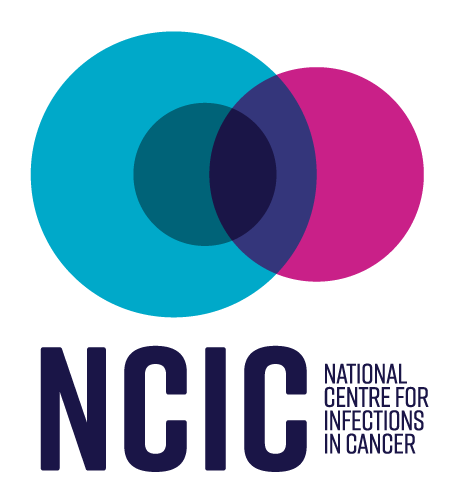Dear all,
We are very proud to announce two new grants, one to Prof Leon Worth, “Appling artificial intelligence for surveillance of infections in cancer”, and one to Prof Karin Thursky “Optimising real world data use to drive cancer care delivery and research”. Both were awarded through the MRFF National Critical Research Infrastructure Initiative, to a total value of over $5.5 million over the next 5 years. Congratulations to both, we are looking forward to working closely with NCIC collaborators at RMIT (School of Computer Science), Biogrid, Melbourne Health and UoM (Centre for digital transformation of Health) on these initiatives. These initiatives will be crucial to driving research froward in the current era of data science, big data and artificial intelligence.
Our very own AMS NP Belinda Lambros represented NCICT in Adelaide at the Cancer Nurses Society of Australia (CNSA) annual meeting, giving a workshop in Advanced Practice of ID. Great work Bel!
Congratulations also to NCIC PhD Dr Beatrice Sim on her appointment to the ASID council as a new representative.
Seminars and Journal Club
NCICT Journal Club
Monthly, Fridays 12 pm
The next NCICT Journal Club series is this Friday July 28th 12-1 pm with NCICT NP Belinda Lambros and nurse PhD candidate Alison Lemoh presenting. Sign up for a live link to the NCIC Journal Club series HERE.
Papers:
Quality of life and mortality in older adults with sepsis after one-year follow up: A prospective cohort study demonstrating the significant impact of frailty. Dong et al
A call for better doctor nurse collaboration: A qualitative study of the experiences of junior doctors and nurses in escalating care for deteriorating ward patients. Legido-Quigley et al
Factors influencing the activation of the rapid response system for clinically deteriorating patients by frontline ward clinicians: a systematic review. Chua et al
NCICT Seminar series
Upcoming
Thursday August 3rd, 12.30-1.30
Exploring the Pros and Cons of Fluoroquinolone Prophylaxis in Neutropenic Fever
Prof Karin Thrursky and Nikhil Singh
Register for link HERE
Previous
Dr Michelle Yong: New developments in managing CMV in transplant recipients
View HERE
Feature Paper
COVID-19 infection among patients with cancer in Australia from 2020 to 2022: a national multicentre cohort study
The Lancet Regional Health - Western Pacific
Victoria G. Hall, Beatrice Z. Sim, Chhay Lim, Christopher Hocking, Teddy Teo, Naomi Runnegar, Peter Boan, Christopher H. Heath, Natalie Rainey, Megan Lyle, Christopher Steer, Eunice Liu, Cassandra Doig, Kate Drummond, Patrick G.P. Charles, Katharine See, Lyn-Li Lim, Omar Shum, Narin Bak, Sue-Anne Mclachlan…Benjamin W. Teh.
The largest study to date into the pandemic’s impact on Australian cancer patients - a uniquely vulnerable group - has found the rate of deaths did not meet international projections and attributes the wide uptake of COVID vaccinations, less severe omicron variant and early intervention antiviral treatments, as saving lives.
The study led by NCICT PhD candidate Dr Victoria Hall and Dr Ben Teh assessed 620 cancer patients across 15 Australian hospitals who caught COVID-19 from March 2020 to April 2022.
All-cause mortality in these patients in the 100 days after their COVID-19 infection was 10.6% overall – well below the mortality figures seen internationally of 30% to 38% for patients with blood cancers, considered one of the highest risk groups.
“We found overall that one in ten Australian cancer patients who caught COVID-19 died within 100 days of the infection, either as a result of COVID-19 or an unrelated cause, and while this is a significant loss of human life it is well short of what was seen elsewhere for this vulnerable patient group,”
“Contributing factors include that most Australian cancer patients caught COVID-19 in early 2022 during the Omicron wave and after COVID vaccines had become widely available, and there were also measures in place to rapidly detect infections and provide early protective antiviral treatments to this group.”
Dr Hall said that this study found that the Omicron variant also appears to be less severe than previous strains in patients with cancer, similar to what has been suggested in the general population. The average age of Australian cancer patients who caught COVID-19 was 63.5 years, with slightly more men (50.6%) and overall, 73.4% were vaccinated against COVID-19.
The rate of deaths declined over the course of the pandemic, with all-cause mortality in 2020 at 25.6% but in 2022 it was 8.1% in patients with cancer and COVID-19.
“Just as we saw deaths in this vulnerable group decline over time there were also consistent drops in the rate of patients needing a hospital stay of more than 24 hours, those who required oxygen or an ICU stay, and those who required mechanical ventilation,” Dr Hall said.
Kind regards
Prof Monica Slavin, MBBS, MD, FRACP, FAAHMS
Head, Department Infectious Disease, Peter MacCallum Cancer Centre
Professor of Infection in Cancer and Transplantation, University of Melbourne Department of Infectious Diseases and the Sir Peter MacCallum Department of Oncology
Director, National Centre for Infections in Cancer and Transplantation




